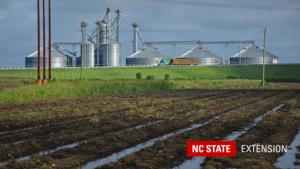
FDA Provides List of Resources for Animal Food Producers Preparing for Tropical Storm Elsa Impacts
As North Carolina begins preparing for the potential landfall and impacts from Tropical Storm Elsa, the U.S. Food and …


El inglés es el idioma de control de esta página. En la medida en que haya algún conflicto entre la traducción al inglés y la traducción, el inglés prevalece.
Al hacer clic en el enlace de traducción se activa un servicio de traducción gratuito para convertir la página al español. Al igual que con cualquier traducción por Internet, la conversión no es sensible al contexto y puede que no traduzca el texto en su significado original. NC State Extension no garantiza la exactitud del texto traducido. Por favor, tenga en cuenta que algunas aplicaciones y/o servicios pueden no funcionar como se espera cuando se traducen.
Inglês é o idioma de controle desta página. Na medida que haja algum conflito entre o texto original em Inglês e a tradução, o Inglês prevalece.
Ao clicar no link de tradução, um serviço gratuito de tradução será ativado para converter a página para o Português. Como em qualquer tradução pela internet, a conversão não é sensivel ao contexto e pode não ocorrer a tradução para o significado orginal. O serviço de Extensão da Carolina do Norte (NC State Extension) não garante a exatidão do texto traduzido. Por favor, observe que algumas funções ou serviços podem não funcionar como esperado após a tradução.
English is the controlling language of this page. To the extent there is any conflict between the English text and the translation, English controls.
Clicking on the translation link activates a free translation service to convert the page to Spanish. As with any Internet translation, the conversion is not context-sensitive and may not translate the text to its original meaning. NC State Extension does not guarantee the accuracy of the translated text. Please note that some applications and/or services may not function as expected when translated.
Collapse ▲
As North Carolina begins preparing for the potential landfall and impacts from Tropical Storm Elsa, the U.S. Food and …

Cotton must be managed differently pre- and post-bloom. First of all, we need to use the correct sampling method. …

We are so excited to see you all at our in-person 2021 Organic Commodities Field Day! The event will …

Stink bug numbers have been relatively low in corn across the state, but that may change during the remainder …

Join us for a mid-season soybean management webinar on July 1, 2021, at 8 a.m. via Zoom. The format …
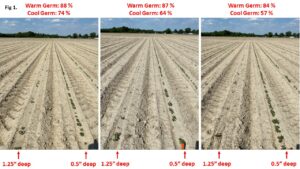
The 2021 planting season has been yet another challenge in North Carolina. During the early part of the planting …

Conditions are looking much better. You can see below that we are close to bumping that morning soil temperature …

Conditions for the coming week do not look good as you can see estimated planting conditions for Rocky Mount …

Soil temperatures are looking good across the cotton-producing areas of the state today. However, a cool front is moving in …

According to Dr. Edmisten and Collins, planting conditions are improving. With planters rolling soon, we urge growers to think …

We are starting to see soil temperatures move into the 60s this morning. That is good news. Getting some …

Our national team of soybean research and Extension specialists from land-grant institutions across the United States will be hosting a …

The soil temps have not looked very good for the last few days. Optimum would be to get up …
The United States Department of Agriculture Farm Service Agency released the 2021- crop Upland Cotton Loan Premium and Discount …

As we start wrapping up corn planting, many people are looking toward planting some soybeans. While many other inputs …

Including corn in a crop rotation provides growers with a great opportunity to get a handle on problematic weeds, …

Soybean cyst nematode (SCN, Heterodera glycines) is a microscopic worm that feeds on the roots of soybean plants. This …

The NC State specialists with soybean responsibilities are pleased to launch the Soybean Diagnostic Key. This key is a …
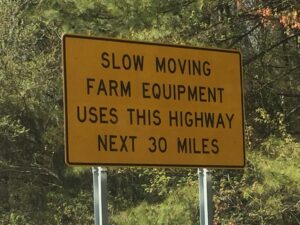
Agricultural and Resource Economics Professor Rod Rejesus and Extension Assistant Professor Andrew Branan presented short presentations on Thursday, April …

Proper soil fertility management is an important step for a successful soybean season. Before planting, it is important to …
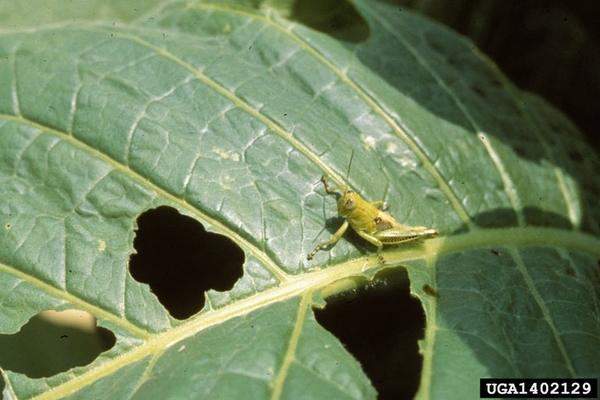
Several species of grasshoppers can cause foliar feeding damage in tobacco. They are typically most …

This Extension publication provides an overview of the tobacco budworm (Chloridea virescens), a common pest …

This factsheet for farmers describes concepts, terminology, and guidelines concerning soil sampling. Proper testing allows …
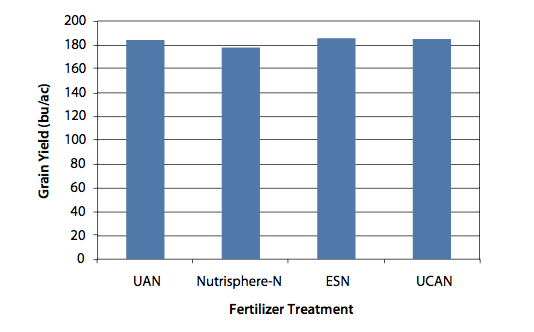
Nitrogen fertilizer products are being developed and marketed as having the potential to increase yields and …
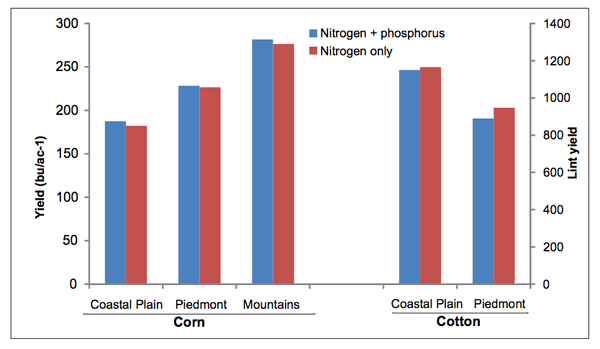
Phosphorus (P) is the second most important nutrient in crop production but is often found …

This factsheet describes the symptoms of a shoot inhibitor herbicide injury.

This factsheet describes the symptoms of a metribuzin herbicide injury.

This factsheet describes the symptoms of a dichlobenil herbicide injury.